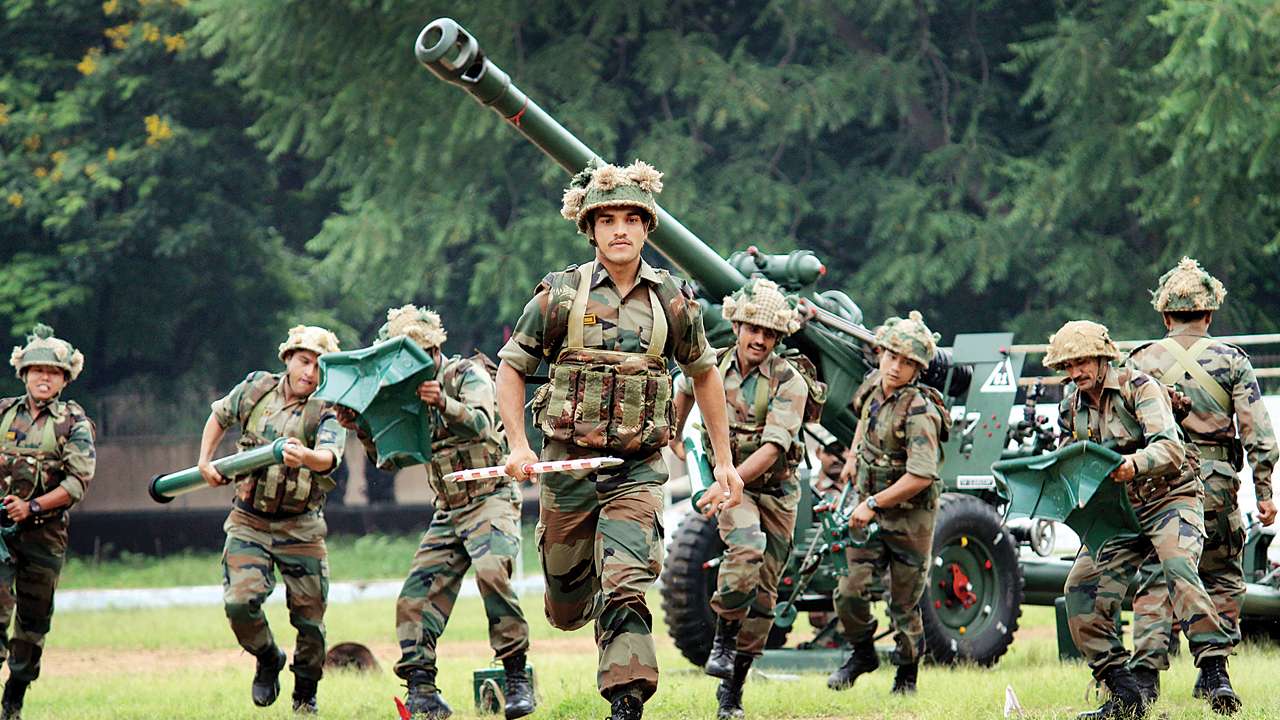
Article 33 of the Constitution is an exception to the Fundamental Rights contained in Part III. It empowers Parliament to restrict or abrogate the Fundamental Rights of certain categories of government servants so as to ensure the proper discharge of their duties and maintenance of discipline amongst them. Besides the three wings of the armed forces, these rights have been abrogated in respect of the members of the police and paramilitary forces, persons employed in intelligence or counter-intelligence services, and communication systems set up for the above organisations.
In exercising the powers conferred by Article 33, Parliament has authorised the Central Government to make rules to restrict certain Fundamental Rights of the members of the armed forces. The Central Government, exercising its rule-making power under the Army Act, 1950 (and also the Air Force Act), has restricted the rights relating to freedom of speech and expression, freedom of assembly, and freedom to form associations and unions contained in Article 19 of the Constitution. In the case of the Navy, Parliament has done this under section 12 of the Navy Act itself. The Supreme Court has ruled that these rights can be restricted even for personnel with non-combat roles in the armed forces. This appears logical because the armed forces have to be a disciplined organisation.
The question which emerges is whether the Fundamental Rights of the members of the armed forces, other than the three listed under Article 19, can also be abrogated even if they do not have any impact on discipline or the performance of duty.
There have been a number of incidents where military governance in matters of promotion, posting, pay and allowances, conditions of service and pension have been taken up in the Supreme Court. The arbitrariness in the justice delivery systems has also been questioned in several cases. The Delhi High Court held in a recent case: “A soldier or officer’s honour and dignity is as much a part of his right to life; it is to be respected just as much, if not more, for the reason that it is offered unhesitatingly and fully in defending the borders of the nation. Unlike ‘hired guns’ they stand guard so that the rest exercise our liberties. Denying them the right to a safe workplace with standard equipment constitutes violation of their right to life and dignity.”
The fundamental rights have been liberally construed by the Supreme Court in the last five decades, keeping in view the international covenants to which India is a party. For instance, the right to protection of life and personal liberty has received the widest possible interpretation. The Constitution Bench of the Supreme Court has held that access to justice is a fundamental right guaranteed to citizens by Article 14 and Article 21 of the Constitution.
While dealing with the case of Ram Sarup in 1964, the Supreme Court relied on the submission made by the Attorney General that each provision of the Army Act is a law made by Parliament and that if any provision tends to affect the fundamental rights, it must be taken that Parliament, under Article 33, has made the requisite modification to affect the respective fundamental right. This was perhaps a wrong interpretation of the constitutional provision, which has to be reviewed in the context of the march of time and the development of law. A constitutional provision must be construed not in a narrow, constricted sense, but in a wide and liberal manner.
The Supreme Court has often taken the path of least resistance by supporting the military in any controversial case. The courts are generally of the opinion that any adverse comment on military higher-ups may erode discipline in the armed forces. The judiciary believes, in good faith, that by supporting the organisation, they are affording an opportunity to the military hierarchy as well as the government to rectify the defects in governance and the justice delivery system. Thus, in cases of alleged bias, denial of rights or injustice at the hands of a commander, the courts are tempted to rule out the possibility of culpability or malice on the part of the superior.
In Maneka Gandhi (1978), the Supreme Court observed, “The attempt of the court should be to expand the reach and ambit of the fundamental rights, rather than to attenuate their meaning and content by a process of judicial construction.” In the case Ajay Hasia (1981), the Court declared that it has a special responsibility “to enlarge the range and meaning of the fundamental rights and to advance the human rights jurisprudence”. However, when it comes to the fundamental rights of military personnel, the Supreme Court’s interpretation of the constitutional provision has been very narrow.
The members of the armed forces must be entitled to the same rights and protections as all other persons, subject to certain limitations imposed to maintain discipline. When the human rights and fundamental freedoms of the members of the armed forces are protected within their institution, they will be more likely to uphold these while carrying out their duties.
The author is a retired wing commander. Views are personal.